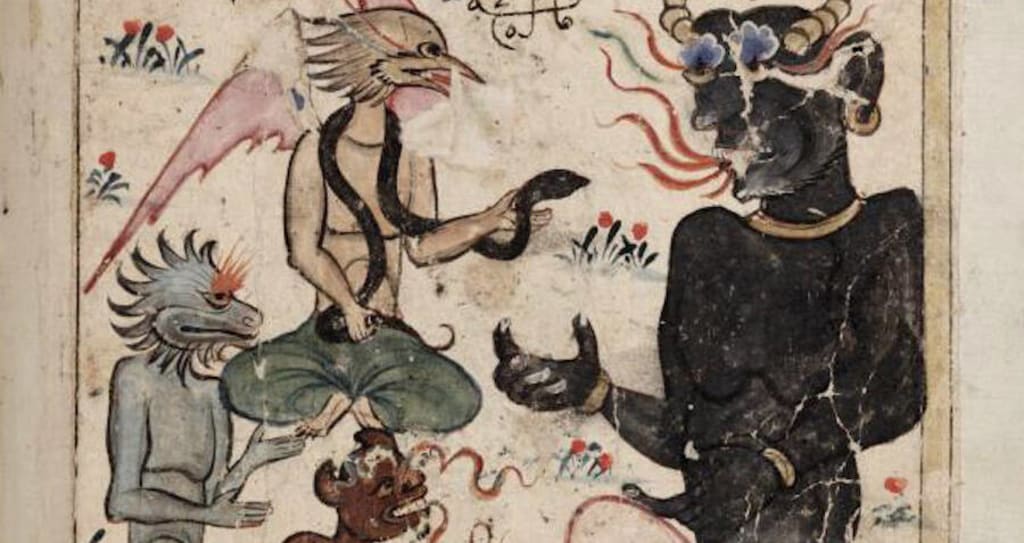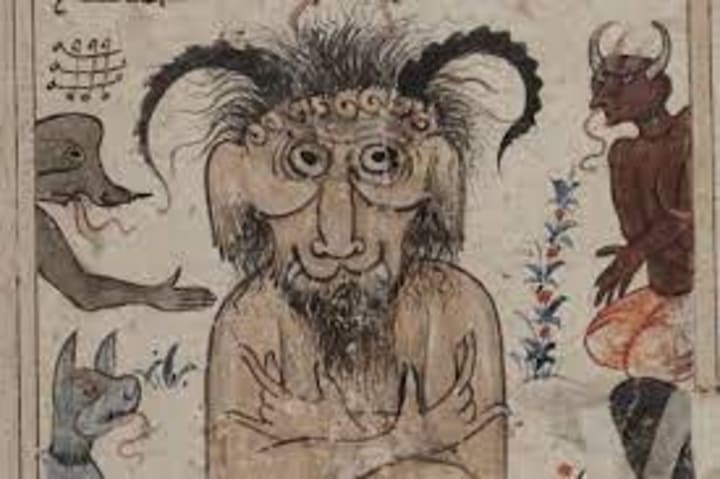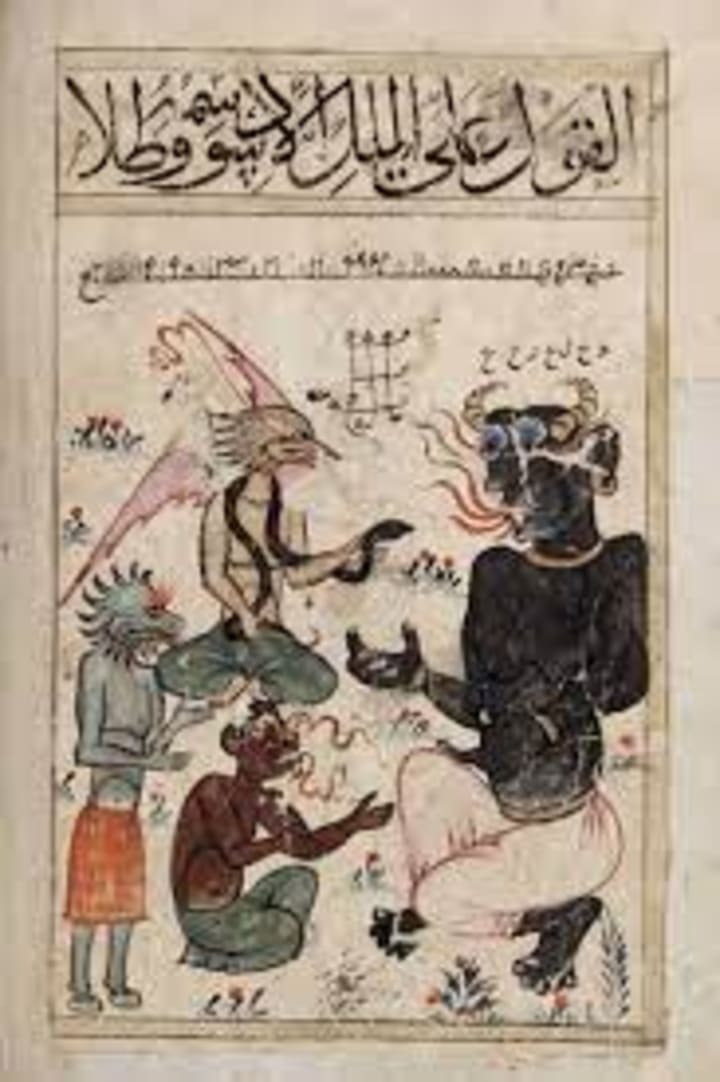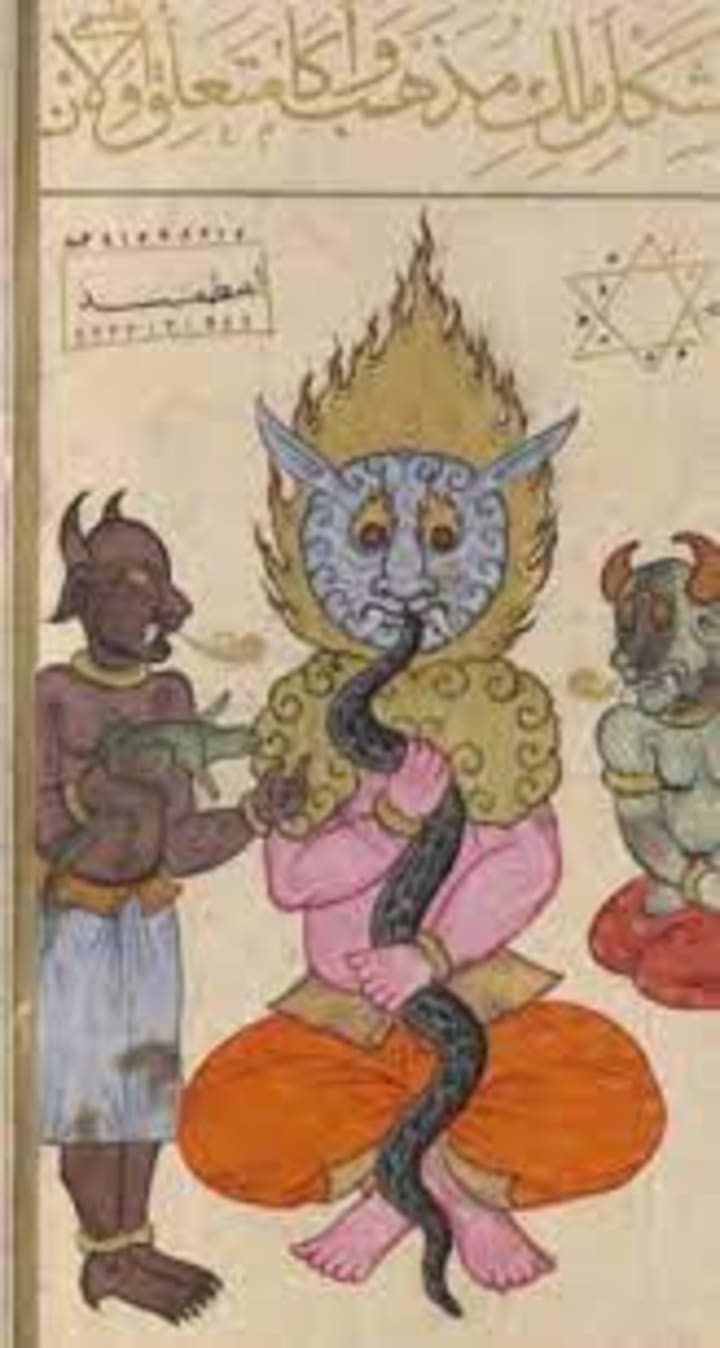From Myth to Reality: Understanding the Presence of Jinn in Our Lives
Jinn, the supernatural beings, have fascinated humans for centuries. Known for their abilities to possess and influence human actions, Jinn are said to inhabit a world parallel to our own. In this article, we will explore the origins, classifications, beliefs, and practices related to Jinn, as well as their portrayal in literature, popular culture, and their impact on modern society.

Jinn :
Jinn, the supernatural beings, have fascinated humans for centuries. Known for their abilities to possess and influence human actions, Jinn are said to inhabit a world parallel to our own.
They are a part of Islamic beliefs and some folklore, but also have a significant presence in popular culture. The complexity of these beings and their interaction with humans has made them a subject of fascination, fear, and misunderstanding.
In this article, we will explore the origins, classifications, beliefs, and practices related to Jinn, as well as their portrayal in literature, popular culture, and their impact on modern society.
1. Introduction to Jinn: Origin and Definition:
What are Jinn?

Jinn are supernatural creatures in Islamic mythology, often portrayed as spirits of smokeless fire. They are believed to be able to shape-shift, take possession of humans and animals, and have the ability to grant wishes.
Origins of Jinn:
The origin of Jinn is rooted in Islamic scripture, where they are mentioned as one of God's creation alongside humans and angels. It is believed that Jinn were created before humans and have been around for thousands of years.
Characteristics of Jinn:
Jinn are said to have free will, just like humans, which means they can choose to do good or bad deeds. They are also said to have unique abilities, such as the power of invisibility and the ability to travel great distances in a short amount of time.
2. Different Types of Jinn: Classification and Characteristics
Type of Jinn:
Jinn are classified into different types, based on their abilities and characteristics. There are Marid, Ifrit, Ghul, Shaitan, and Sila. Marid are known as the most powerful type, while Shaitan is considered the most evil.
Appearance of Jinn:
Jinn are often depicted as shadowy, ghost-like figures or animals such as snakes, dogs, and donkeys. However, they are also believed to be able to take on human form, which can make them difficult to identify.
Abilities of Jinn:
Jinn are said to possess a range of abilities including shape-shifting, telekinesis, mind-reading, and the ability to possess humans and animals. They are also known to be able to grant wishes if approached correctly.
3. Beliefs and Practices Related to Jinn: Islamic and Folklore Perspectives
Islamic Beliefs and Practices Regarding Jinn:

Islam teaches that Jinn are real creatures and should be taken seriously. Islamic teachings emphasize the importance of seeking refuge in God from the influence of Jinn, and that the only way to interact with them is by reciting specific prayers.
Folklore Beliefs and Practices Regarding Jinn:
In folklore, Jinn are often depicted as mischievous and vengeful tricksters who can cause harm to humans if they are not appeased. It is believed that certain taboos and rituals can help ward off the influence of Jinn.
Taboos and Superstitions Related to Jinn:
There are many taboos and superstitions related to Jinn, such as avoiding certain places, not wearing certain clothes, and reciting specific prayers. These beliefs vary depending on cultural and regional differences.
4. Jinn in Literature and Popular Culture: Myths and Legends
Jinn in Islamic Literature:
Jinn have been mentioned in various Islamic texts, including the Quran and Hadith. They are often portrayed as powerful but unpredictable beings, capable of causing both good and evil.
Jinn in Popular Culture:
Jinn have been used as a popular subject in many different genres of popular culture, including films, television shows, and books. They are often portrayed as supernatural beings who possess unique powers and abilities.
Myths and Legends Related to Jinn:
There are many myths and legends related to Jinn, including stories of them granting wishes to people who showed them kindness, or causing havoc for those who disrespected them. These stories often vary depending on the cultural context in which they are told.
5. Interaction with Jinn: Protection and Exorcism Methods

Protection from Jinn:
Protection from Jinn is an essential aspect of Islamic beliefs. Muslims believe that reciting specific verses from the Quran, such as Ayatul Kursi and Surah Al-Falaq and Surah An-Nas, can provide protection from the evil influence of Jinn.
Additionally, following Islamic rituals such as offering prayers and giving charity can also protect individuals from the harmful effects of Jinn.
Exorcism of Jinn:
Exorcism is the process of removing an evil spirit or Jinn from an individual's body. In Islam, exorcism is performed by a trained Islamic scholar, who recites verses from the Quran and offers prayers to drive away the Jinn. Some other methods include offerings of coals and incense, and blowing water onto the affected person.
Common Misconceptions About Jinn:
There are several misconceptions about Jinn, which have caused fear and confusion among people. One of the most common misconceptions is that
Jinn are responsible for every misfortune and illness that an individual faces. Another misconception is that Jinn only targets individuals who have done something wrong or have angered them.
6. Scientific Explanation of Jinn: Psychology and Paranormal Studies

Psychological Explanation of Jinn:
Psychologists believe that Jinn are not supernatural creatures but a product of the human psyche. They suggest that Jinn-like experiences are a result of hallucinations and delusions, often experienced by people who suffer from mental health issues such as schizophrenia.
Paranormal Studies on Jinn:
Paranormal studies have explored the existence of Jinn by investigating unexplained phenomena and supernatural experiences. Some researchers suggest that Jinn-like beings can be explained by the existence of parallel universes and other dimensions that exist beyond our physical world.
Scientific Skepticism Regarding Jinn:
Despite the popularity of Jinn beliefs in Islamic and Middle Eastern cultures, scientific skepticism remains regarding their existence. Skeptics argue that Jinn are a product of human imagination and not based on any empirical evidence.
7. Jinn in Modern World: Misconceptions and Misinterpretations
Jinn in Contemporary Media:
Jinn have been portrayed in various forms of media, and their depiction often perpetuates existing misconceptions. Films and television shows often depict Jinn as malevolent creatures who cause havoc and destruction. This representation can be misleading and can lead to further misunderstandings about Jinn.
Misuse of Jinn Beliefs:
Jinn beliefs have been misused in several ways, such as for promoting superstitions, exploiting people's fears, and making fraudulent claims of possessing supernatural powers. This has led to an increased need for educating people about the true nature and role of Jinn in Islamic culture.
Modern Interactions with Jinn:
Despite modernization and development, Jinn beliefs remain prevalent in Islamic cultures worldwide. Many people still believe in their existence and seek protection from their harmful influence.
However, modernization has also led to changes in the way people interact with Jinn, with some seeking help from modern-day exorcists and paranormal investigators.
8. Conclusion: The Significance of Jinn in Human History and Culture
Importance of Jinn in Islamic Culture:
Jinn beliefs have been an integral part of Islamic culture for centuries, and they continue to influence Muslim beliefs and practices. Islamic scholars have emphasized the significance of understanding the true nature of Jinn and avoiding superstitions and misconceptions.
Impact of Jinn on Global Culture:
Jinn beliefs have influenced cultures beyond the Islamic world and have been the subject of various literary and artistic works worldwide. Jinn beliefs have also impacted the socio-political context of the Middle East, especially in terms of how Islamic cultures perceive and interact with Jinn.
Future Implications of Jinn Beliefs:
As Islamic cultures continue to evolve and adapt to modernization, so do Jinn beliefs and practices. It is essential to continue the discussions about Jinn and promote a better understanding of their true nature.
A scientific investigation into Jinn beliefs may provide a better understanding of the phenomenon and may help resolve some of the misconceptions and fears surrounding them.
Conclusion:
In conclusion, Jinn have been a part of human culture and beliefs for centuries, and their influence continues to be felt in the modern world.
Whether viewed as supernatural beings or simply a product of human imagination, they have left an indelible mark on human history. While beliefs and practices related to them may differ, what is clear is their significance in shaping human culture and beliefs.
As we continue to explore the unknown and paranormal, Jinn will remain a subject of fascination and intrigue.





Comments
There are no comments for this story
Be the first to respond and start the conversation.